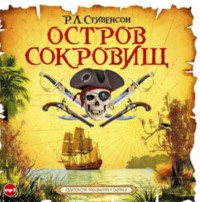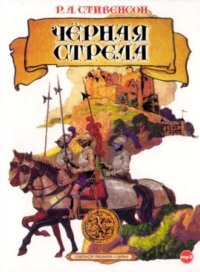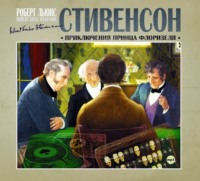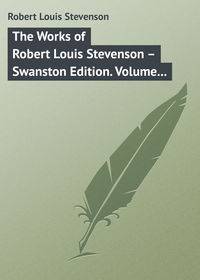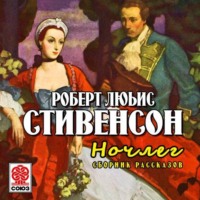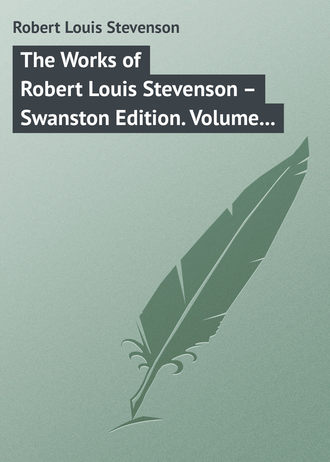 полная версия
полная версияThe Works of Robert Louis Stevenson – Swanston Edition. Volume 14
III
MY KINGDOM
Down by a shining water wellI found a very little dell,No higher than my head.The heather and the gorse aboutIn summer bloom were coming out,Some yellow and some red.I called the little pool a sea;The little hills were big to me;For I am very small.I made a boat, I made a town,I searched the caverns up and down,And named them one and all.And all about was mine, I said,The little sparrows overhead,The little minnows too.This was the world, and I was king;For me the bees came by to sing,For me the swallows flew.I played there were no deeper seas,Nor any wider plains than these,Nor other kings than me.At last I heard my mother callOut from the house at even-fall,To call me home to tea.And I must rise and leave my dell,And leave my dimpled water well,And leave my heather blooms.Alas! and as my home I neared,How very big my nurse appeared,How great and cool the rooms!IV
PICTURE-BOOKS IN WINTER
Summer fading, winter comes —Frosty mornings, tingling thumbs,Window robins, winter rooks,And the picture story-books.Water now is turned to stoneNurse and I can walk upon;Still we find the flowing brooksIn the picture story-books.All the pretty things put byWait upon the children’s eye,Sheep and shepherds, trees and crooks,In the picture story-books.We may see how all things are,Seas and cities, near and far,And the flying fairies’ looks,In the picture story-books.How am I to sing your praise,Happy chimney-corner days,Sitting safe in nursery nooks,Reading picture story-books?V
MY TREASURES
These nuts, that I keep in the back of the nestWhere all my lead soldiers are lying at rest,Were gathered in autumn by nursie and meIn a wood with a well by the side of the sea.This whistle we made (and how clearly it sounds!)By the side of a field at the end of the grounds.Of a branch of a plane, with a knife of my own,It was nursie who made it, and nursie alone!The stone, with the white and the yellow and grey,We discovered I cannot tell how far away;And I carried it back, although weary and cold,For, though father denies it, I’m sure it is gold.But of all of my treasures the last is the king,For there’s very few children possess such a thing;And that is a chisel, both handle and blade,Which a man who was really a carpenter made.VI
BLOCK CITY
What are you able to build with your blocks?Castles and palaces, temples and docks.Rain may keep raining, and others go roam,But I can be happy and building at home.Let the sofa be mountains, the carpet be sea,There I’ll establish a city for me:A kirk and a mill and a palace beside,And a harbour as well where my vessels may ride.Great is the palace with pillar and wall,A sort of a tower on the top of it all,And steps coming down in an orderly wayTo where my toy vessels lie safe in the bay.This one is sailing and that one is moored:Hark to the song of the sailors on board!And see, on the steps of my palace, the kingsComing and going with presents and things!Now I have done with it, down let it go!All in a moment the town is laid low.Block upon block lying scattered and free,What is there left of my town by the sea?Yet, as I saw it, I see it again,The kirk and the palace, the ships and the men,And as long as I live, and where’er I may be,I’ll always remember my town by the sea.VII
THE LAND OF STORY-BOOKS
At evening when the lamp is lit,Around the fire my parents sit;They sit at home and talk and sing,And do not play at anything.Now, with my little gun, I crawlAll in the dark along the wall,And follow round the forest trackAway behind the sofa back.There, in the night, where none can spy,All in my hunter’s camp I lie,And play at books that I have readTill it is time to go to bed.These are the hills, these are the woods,These are my starry solitudes;And there the river by whose brinkThe roaring lions come to drink.I see the others far awayAs if in firelit camp they lay,And I, like to an Indian scout,Around their party prowled aboutSo, when my nurse comes in for me,Home I return across the sea,And go to bed with backward looksAt my dear land of Story-books.VIII
ARMIES IN THE FIRE
The lamps now glitter down the street;Faintly sound the falling feet;And the blue even slowly fallsAbout the garden trees and walls.Now in the falling of the gloomThe red fire paints the empty room:And warmly on the roof it looks,And flickers on the backs of books.Armies march by tower and spireOf cities blazing, in the fire; —Till as I gaze with staring eyes,The armies fade, the lustre dies.Then once again the glow returns;Again the phantom city burns;And down the red-hot valley, lo!The phantom armies marching go!Blinking embers, tell me trueWhere are those armies marching to,And what the burning city isThat crumbles in your furnaces!IX
THE LITTLE LAND
When at home alone I sitAnd am very tired of it,I have just to shut my eyesTo go sailing through the skies —To go sailing far awayTo the pleasant Land of Play;To the fairy land afarWhere the Little People are;Where the clover-tops are trees,And the rain-pools are the seas,And the leaves like little shipsSail about on tiny trips;And above the daisy treeThrough the grasses,High o’erhead the Bumble BeeHums and passes.In that forest to and froI can wander, I can go;See the spider and the fly,And the ants go marching byCarrying parcels with their feetDown the green and grassy street.I can in the sorrel sitWhere the ladybird alit.I can climb the jointed grass;And on highSee the greater swallows passIn the sky,And the round sun rolling byHeeding no such things as I.Through that forest I can passTill, as in a looking-glass,Humming fly and daisy treeAnd my tiny self I seePainted very clear and neatOn the rain-pool at my feet.Should a leaflet come to landDrifting near to where I stand,Straight I’ll board that tiny boatRound the rain-pool sea to float.Little thoughtful creatures sitOn the grassy coasts of it;Little things with lovely eyesSee me sailing with surprise.Some are clad in armour green —(These have sure to battle been!) —Some are pied with ev’ry hue,Black and crimson, gold and blue;Some have wings and swift are gone; —But they all look kindly on.When my eyes I once againOpen and see all things plain;High bare walls, great bare floor;Great big knobs on drawer and door;Great big people perched on chairs,Stitching tucks and mending tears,Each a hill that I could climb,And talking nonsense all the time —O dear me,That I could beA sailor on the rain-pool sea,A climber in the clover-tree,And just come back, a sleepy-head,Late at night to go to bed.GARDEN DAYS
I
NIGHT AND DAY
When the golden day is done,Through the closing portal,Child and garden, flower and sun,Vanish all things mortal.As the blinding shadows fall,As the rays diminish,Under evening’s cloak, they allRoll away and vanish.Garden darkened, daisy shut,Child in bed, they slumber —Glow-worm in the highway rut,Mice among the lumber.In the darkness houses shine,Parents move with candles;Till on all the night divineTurns the bedroom handles.Till at last the day beginsIn the east a-breaking,In the hedges and the whinsSleeping birds a-waking.In the darkness shapes of things,Houses, trees, and hedges,Clearer grow; and sparrows’ wingsBeat on window ledges.These shall wake the yawning maid;She the door shall open —Finding dew on garden gladeAnd the morning broken.There my garden grows againGreen and rosy painted,As at eve behind the paneFrom my eyes it fainted.Just as it was shut away,Toy-like, in the even,Here I see it glow with dayUnder glowing heaven.Every path and every plot,Every bush of roses,Every blue forget-me-notWhere the dew reposes,“Up!” they cry, “the day is comeOn the smiling valleys:We have beat the morning drum;Playmate, join your allies!”II
NEST EGGS
Birds all the sunny dayFlutter and quarrel,Here in the arbour-likeTent of the laurel.Here in the forkThe brown nest is seated;Four little blue eggsThe mother keeps heated.While we stand watching her,Staring like gabies,Safe in each egg are theBird’s little babies.Soon the frail eggs they shallChip, and upspringingMake all the April woodsMerry with singing.Younger than we are,O children, and frailer,Soon in blue air they’ll be,Singer and sailor.We, so much older,Taller and stronger,We shall look down on theBirdies no longer.They shall go flyingWith musical speechesHigh overhead in theTops of the beeches.In spite of our wisdomAnd sensible talking,We on our feet must goPlodding and walking.III
THE FLOWERS
All the names I know from nurse:Gardener’s garters, Shepherd’s purse,Bachelor’s buttons, Lady’s smock,And the Lady Hollyhock.Fairy places, fairy things,Fairy woods where the wild bee wings,Tiny trees for tiny dames —These must all be fairy names!Tiny woods below whose boughsShady fairies weave a house;Tiny tree-tops, rose or thyme,Where the braver fairies climb!Fair are grown-up people’s trees,But the fairest woods are these;Where if I were not so tall,I should live for good and all.IV
SUMMER SUN
Great is the sun, and wide he goesThrough empty heaven without repose;And in the blue and glowing daysMore thick than rain he showers his rays.Though closer still the blinds we pullTo keep the shady parlour cool,Yet he will find a chink or twoTo slip his golden fingers through.The dusty attic, spider-clad,He, through the keyhole, maketh glad;And through the broken edge of tilesInto the laddered hayloft smiles.Meantime his golden face aroundHe bares to all the garden ground,And sheds a warm and glittering lookAmong the ivy’s inmost nook.Above the hills, along the blue,Round the bright air with footing true,To please the child, to paint the rose,The gardener of the World, he goes.V
THE DUMB SOLDIER
When the grass was closely mown,Walking on the lawn alone,In the turf a hole I foundAnd hid a soldier underground.Spring and daisies came apace;Grasses hide my hiding-place;Grasses run like a green seaO’er the lawn up to my knee.Under grass alone he lies,Looking up with leaden eyes,Scarlet coat and pointed gun,To the stars and to the sun.When the grass is ripe like grain,When the scythe is stoned again,When the lawn is shaven clear,Then my hole shall reappear.I shall find him, never fear,I shall find my grenadier;But, for all that’s gone and come,I shall find my soldier dumb.He has lived, a little thing,In the grassy woods of spring;Done, if he could tell me true,Just as I should like to do.He has seen the starry hoursAnd the springing of the flowers;And the fairy things that passIn the forests of the grass.In the silence he has heardTalking bee and ladybird,And the butterfly has flownO’er him as he lay alone.Not a word will he disclose,Not a word of all he knows.I must lay him on the shelf,And make up the tale myself.VI
AUTUMN FIRES
In the other gardensAnd all up the vale,From the autumn bonfiresSee the smoke trail!Pleasant summer over,And all the summer flowers,The red fire blazes,The grey smoke towers.Sing a song of seasons!Something bright in all!Flowers in the summer,Fires in the fall!VII
THE GARDENER
The gardener does not love to talk,He makes me keep the gravel walk;And when he puts his tools away,He locks the door and takes the key.Away behind the currant rowWhere no one else but cook may go,Far in the plots, I see him dig,Old and serious, brown and big.He digs the flowers, green, red, and blue,Nor wishes to be spoken to.He digs the flowers and cuts the hay,And never seems to want to play.Silly gardener! summer goes,And winter comes with pinching toes,When in the garden bare and brownYou must lay your barrow down.Well now, and while the summer stays,To profit by these garden days,O how much wiser you would beTo play at Indian wars with me!VIII
HISTORICAL ASSOCIATIONS
Dear Uncle Jim, this garden ground,That now you smoke your pipe around,Has seen immortal actions doneAnd valiant battles lost and won.Here we had best on tip-toe tread,While I for safety march ahead,For this is that enchanted groundWhere all who loiter slumber sound.Here is the sea, here is the sand,Here is simple Shepherd’s Land,Here are the fairy hollyhocks,And there are Ali Baba’s rocks.But yonder, see! apart and high,Frozen Siberia lies; where I,With Robert Bruce and William Tell,Was bound by an enchanter’s spell.There, then, a while in chains we lay,In wintry dungeons, far from day;But ris’n at length, with might and main,Our iron fetters burst in twain.Then all the horns were blown in town;And, to the ramparts clanging down,All the giants leaped to horseAnd charged behind us through the gorse.On we rode, the others and I,Over the mountains blue, and byThe Silver River, the sounding sea,And the robber woods of Tartary.A thousand miles we galloped fast,And down the witches’ lane we passed,And rode amain, with brandished sword,Up to the middle, through the ford.Last we drew rein – a weary three —Upon the lawn, in time for tea,And from our steeds alighted downBefore the gates of Babylon.ENVOYS
I
TO WILLIE AND HENRIETTA
If two may read arightThese rhymes of old delightAnd house and garden play,You two, my cousins, and you only, may.You in a garden greenWith me were king and queen,Were hunter, soldier, tar,And all the thousand things that children are.Now in the elders’ seatWe rest with quiet feet,And from the window-bayWe watch the children, our successors, play.“Time was,” the golden headIrrevocably said;But time which none can bind,While flowing fast away, leaves love behind.II
TO MY MOTHER
You too, my mother, read my rhymesFor love of unforgotten times,And you may chance to hear once moreThe little feet along the floor.III
TO AUNTIE
Chief of our aunts– not only I,But all your dozen of nurslings cry —What did the other children do?And what were childhood, wanting you?IV
TO MINNIE
The red room with the giant bedWhere none but elders lay their head;The little room where you and IDid for a while together lie,And, simple suitor, I your handIn decent marriage did demand;The great day-nursery, best of all,With pictures pasted on the wallAnd leaves upon the blind —A pleasant room wherein to wakeAnd hear the leafy garden shakeAnd rustle in the wind —And pleasant there to lie in bedAnd see the pictures overhead —The wars about Sebastopol,The grinning guns along the wall,The daring escalade,The plunging ships, the bleating sheep,The happy children ankle-deep,And laughing as they wade:All these are vanished clean away,And the old manse is changed to-day;It wears an altered faceAnd shields a stranger race.The river, on from mill to mill,Flows past our childhood’s garden still;But ah! we children never moreShall watch it from the water-door!Below the yew – it still is there —Our phantom voices haunt the airAs we were still at play,And I can hear them call and say:“How far is it to Babylon?”Ah, far enough, my dear,Far, far enough from here —Yet you have farther gone!“Can I get there by candlelight?”So goes the old refrain.I do not know – perchance you might —But only, children, hear it right,Ah, never to return again!The eternal dawn, beyond a doubt,Shall break on hill and plain,And put all stars and candles out,Ere we be young again.To you in distant India, theseI send across the seas,Nor count it far across.For which of us forgetsThe Indian cabinets,The bones of antelope, the wings of albatross,The pied and painted birds and beans,The junks and bangles, beads and screens,The gods and sacred bells,And the loud-humming, twisted shells?The level of the parlour floorWas honest, homely, Scottish shore;But when we climbed upon a chair,Behold the gorgeous East was there!Be this a fable; and beholdMe in the parlour as of old,And Minnie just above me setIn the quaint Indian cabinet!Smiling and kind, you grace a shelfToo high for me to reach myself.Reach down a hand, my dear, and takeThese rhymes for old acquaintance’ sake.V
TO MY NAME-CHILD
1Some day soon this rhyming volume, if you learn with proper speed,Little Louis Sanchez, will be given you to read.Then shall you discover that your name was printed downBy the English printers, long before, in London town.In the great and busy city where the East and West are met,All the little letters did the English printer set;While you thought of nothing, and were still too young to play,Foreign people thought of you in places far away.Ay, and while you slept, a baby, over all the English landsOther little children took the volume in their hands;Other children questioned, in their homes across the seas:Who was little Louis, won’t you tell us, mother, please?2Now that you have spelt your lesson, lay it down and go and play,Seeking shells and seaweed on the sands of Monterey,Watching all the mighty whalebones, lying buried by the breeze,Tiny sandy-pipers, and the huge Pacific seas.And remember in your playing, as the sea-fog rolls to you,Long ere you could read it, how I told you what to do;And that while you thought of no one, nearly half the world awaySome one thought of Louis on the beach of Monterey!VI
TO ANY READER
As from the house your mother seesYou playing round the garden trees,So you may see, if you will lookThrough the windows of this book,Another child, far, far away,And in another garden, play.But do not think you can at all,By knocking on the window, callThat child to hear you. He intentIs all on his play-business bent.He does not hear; he will not look,Not yet be lured out of this book.For, long ago, the truth to say,He has grown up and gone away,And it is but a child of airThat lingers in the garden there.UNDERWOODS
There are men and classes of men that stand above the common herd: the soldier, the sailor, and the shepherd not unfrequently; the artist rarely; rarelier still, the clergyman; the physician almost as a rule. He is the flower (such as it is) of our civilisation; and when that stage of man is done with, and only remembered to be marvelled at in history, he will be thought to have shared as little as any in the defects of the period, and most notably exhibited the virtues of the race. Generosity he has, such as is possible to those who practise an art, never to those who drive a trade; discretion, tested by a hundred secrets; tact, tried in a thousand embarrassments; and, what are more important, Heraclean cheerfulness and courage. So it is that he brings air and cheer into the sickroom, and often enough, though not so often as he wishes, brings healing.
Gratitude is but a lame sentiment; thanks, when they are expressed, are often more embarrassing than welcome; and yet I must set forth mine to a few out of many doctors who have brought me comfort and help: to Dr. Willey of San Francisco, whose kindness to a stranger it must be as grateful to him, as it is touching to me, to remember; to Dr. Karl Ruedi of Davos, the good genius of the English in his frosty mountains; to Dr. Herbert of Paris, whom I knew only for a week, and to Dr. Caissot of Montpellier, whom I knew only for ten days, and who have yet written their names deeply in my memory; to Dr. Brandt of Royat; to Dr. Wakefield of Nice; to Dr. Chepmell, whose visits make it a pleasure to be ill; to Dr. Horace Dobell, so wise in counsel; to Sir Andrew Clark, so unwearied in kindness; and to that wise youth, my uncle, Dr. Balfour.
I forget as many as I remember; and I ask both to pardon me, these for silence, those for inadequate speech. But one name I have kept on purpose to the last, because it is a household word with me, and because if I had not received favours from so many hands and in so many quarters of the world, it should have stood upon this page alone: that of my friend Thomas Bodley Scott of Bournemouth. Will he accept this, although shared among so many, for a dedication to himself? and when next my ill-fortune (which has thus its pleasant side) brings him hurrying to me when he would fain sit down to meat or lie down to rest, will he care to remember that he takes this trouble for one who is not fool enough to be ungrateful?
R. L. S.Skerryvore,
Bournemouth.
BOOK I
IN ENGLISH
I
ENVOY
Go, little book, and wish to allFlowers in the garden, meat in the hall,A bin of wine, a spice of wit,A house with lawns enclosing it,A living river by the door,A nightingale in the sycamore!II
A SONG OF THE ROAD
The gauger walked with willing foot,And aye the gauger played the flute;And what should Master Gauger playBut Over the hills and far away?Whene’er I buckle on my packAnd foot it gaily in the track,O pleasant gauger, long since dead,I hear you fluting on ahead.You go with me the selfsame way —The selfsame air for me you play;For I do think and so do youIt is the tune to travel to.For who would gravely set his faceTo go to this or t’other place?There’s nothing under heav’n so blueThat’s fairly worth the travelling to.On every hand the roads begin,And people walk with zeal therein;But wheresoe’er the highways tend,Be sure there’s nothing at the end.Then follow you, wherever hieThe travelling mountains of the sky.Or let the streams in civil modeDirect your choice upon a road;For one and all, or high or low,Will lead you where you wish to go;And one and all go night and dayOver the hills and far away!Forest of Montargis, 1878.III
THE CANOE SPEAKS
On the great streams the ships may goAbout men’s business to and fro.But I, the egg-shell pinnace, sleepOn crystal waters ankle-deep:I, whose diminutive design,Of sweeter cedar, pithier pine,Is fashioned on so frail a mould,A hand may launch, a hand withhold:I, rather, with the leaping troutWind, among lilies, in and out;I, the unnamed, inviolate,Green, rustic rivers navigate;My dipping paddle scarcely shakesThe berry in the bramble-brakes;Still forth on my green way I wendBeside the cottage garden-end;And by the nested angler fare,And take the lovers unaware.By willow wood and water-wheelSpeedily fleets my touching keel;By all retired and shady spotsWhere prosper dim forget-me-nots;By meadows where at afternoonThe growing maidens troop in JuneTo loose their girdles on the grass.Ah! speedier than before the glassThe backward toilet goes; and swiftAs swallows quiver, robe and shiftAnd the rough country stockings lieAround each young divinity.When, following the recondite brook,Sudden upon this scene I look,And light with unfamiliar faceOn chaste Diana’s bathing-place,Loud ring the hills about and allThe shallows are abandoned…IV
It is the season now to goAbout the country high and low,Among the lilacs hand in hand,And two by two in fairyland.The brooding boy, the sighing maid,Wholly fain and half afraid,Now meet along the hazel’d brookTo pass and linger, pause and look.A year ago, and blithely paired,Their rough-and-tumble play they shared;They kissed and quarrelled, laughed and cried,A year ago at Eastertide.With bursting heart, with fiery face,She strove against him in the race;He unabashed her garter saw,That now would touch her skirts with awe.Now by the stile ablaze she stops,And his demurer eyes he drops;Now they exchange averted sighsOr stand and marry silent eyes.And he to her a hero isAnd sweeter she than primroses;Their common silence dearer farThan nightingale and mavis are.Now when they sever wedded hands,Joy trembles in their bosom-strandsAnd lovely laughter leaps and fallsUpon their lips in madrigals.V
THE HOUSE BEAUTIFUL
A naked house, a naked moor,A shivering pool before the door,A garden bare of flowers and fruitAnd poplars at the garden foot:Such is the place that I live in,Bleak without and bare within.Yet shall your ragged moor receiveThe incomparable pomp of eve,And the cold glories of the dawnBehind your shivering trees be drawn;And when the wind from place to placeDoth the unmoored cloud-galleons chase,Your garden gloom and gleam again,With leaping sun, with glancing rain.Here shall the wizard moon ascendThe heavens, in the crimson endOf day’s declining splendour; hereThe army of the stars appear.The neighbour hollows, dry or wet,Spring shall with tender flowers beset;And oft the morning muser seeLarks rising from the broomy lea,And every fairy wheel and threadOf cobweb, dew-bediamonded.When daisies go, shall winter-timeSilver the simple grass with rime;Autumnal frosts enchant the poolAnd make the cart-ruts beautiful;And when snow-bright the moor expands,How shall your children clap their hands!To make this earth, our hermitage,A cheerful and a changeful page,God’s bright and intricate deviceOf days and seasons doth suffice.

